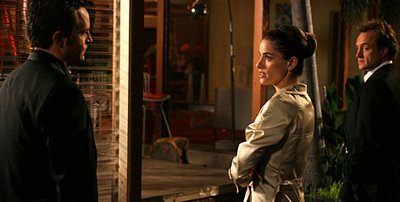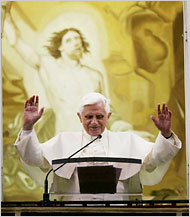
We here at the Strawman love, love Aaron Sorkin. We love his wit, his assured charm, his facility with the spoken and written word, and, not least, his overall bravura. The guy’s got chops. If we didn’t love the entirety of A Few Good Men (adapted from his Broadway play) we certainly loved that testy verbal exchange between Tom Cruise and Jack Nicholson near the end. You remember, “I want the Truth”; “You Can Handle the Truth”. (Actually, that’s rather topical with respect to the whole definition of torture debate going on. But anyway)
And let us not forget our love for West Wing, that White House Drama about the political machinations and fascinating personalities at the highest level of government. We remember downloading all of the episodes we missed, watching them more than twice, if only to follow the oftentimes hurried and inscrutable dialogue. We were sad to see it go off the air, but not surprised. We barely watched the last two seasons. And when Leo (John Spencer) died, well, what was left to say? President Bartlet was succeeded by President-Elect Santos -- both democrats, as fanciful as that was. But the show’s decline began when its writer and creator, Aaron Sorkin, was fired two seasons prior. And of course, he needed a Job, so he went to Hollywood.
Studio 60 on the Sunset Strip is Sorkin’s new job, and he’s brought along Bradley Whitford from the West Wing. The show revolves around the behind-the-scene travails of a Saturday Night Live type production where Whitford and Mathew Perry (of Friends fame) are tasked to helm writing and directing responsibilities. Perry, the writer, has an addiction (or will likely develop one) to painkillers. Both Sorkin and Perry have had histories of drug addiction, so the casting is both self-referentially smirking at us, and so Meta as to be absurd. The charcters were already unbelieveable to begin with, and even more so now. Moreover, it’s self-flattery of the most cringe-inducing sort that Perry’s character is a brilliant award-wining writer, formerly of the NBS network, from where he was fired three years prior, only to be asked back to the network.
Everything about S60SS is self important and bloated, much like the West Wing. The only difference between two, however, is that the bloat and self-importance was necessary for the subject matter of the West Wing, whereas S60SS feels incredibly self-satisfied, not to mention self-masturbatory. When you write about politics at the highest level, seriousness, vapid moralizing, and false, if bien-pensantt, equivalencies are what one traffics in without regard to accuracy. The source material is the White House. But when its Hollywood, and it’s about a “comedy show” and the guys who run it—pah-leas. Which is to say I found nothing particularly compelling about S60SS, nor was any of Sorkin’s script for the pilot the least bit memorable. Needless to say, I didn’t like, and now await its inevitable cancellation.
